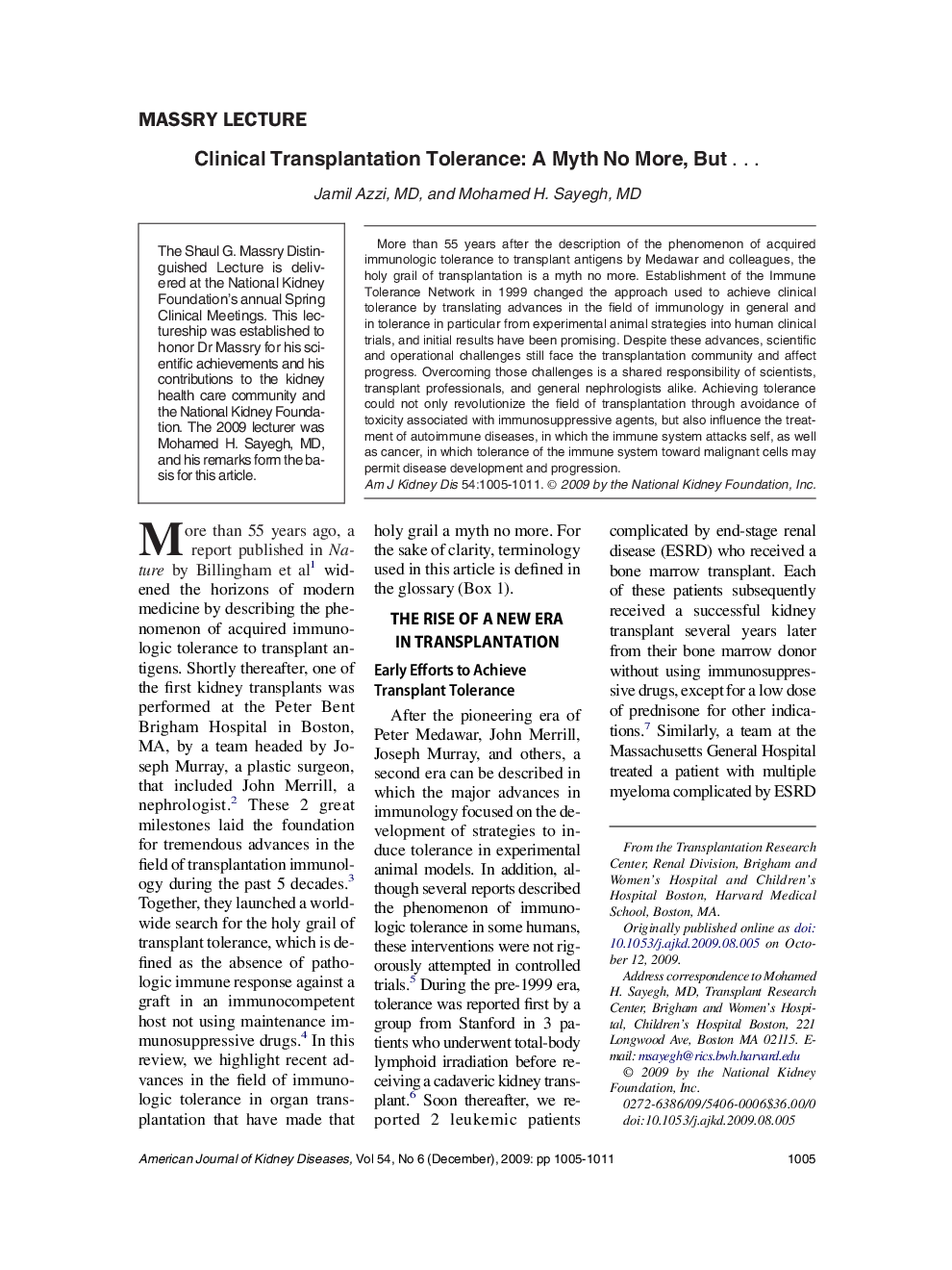| Article ID | Journal | Published Year | Pages | File Type |
|---|---|---|---|---|
| 3850421 | American Journal of Kidney Diseases | 2009 | 7 Pages |
Abstract
More than 55 years after the description of the phenomenon of acquired immunologic tolerance to transplant antigens by Medawar and colleagues, the holy grail of transplantation is a myth no more. Establishment of the Immune Tolerance Network in 1999 changed the approach used to achieve clinical tolerance by translating advances in the field of immunology in general and in tolerance in particular from experimental animal strategies into human clinical trials, and initial results have been promising. Despite these advances, scientific and operational challenges still face the transplantation community and affect progress. Overcoming those challenges is a shared responsibility of scientists, transplant professionals, and general nephrologists alike. Achieving tolerance could not only revolutionize the field of transplantation through avoidance of toxicity associated with immunosuppressive agents, but also influence the treatment of autoimmune diseases, in which the immune system attacks self, as well as cancer, in which tolerance of the immune system toward malignant cells may permit disease development and progression.
Related Topics
Health Sciences
Medicine and Dentistry
Nephrology
Authors
Jamil MD, Mohamed H. MD,
